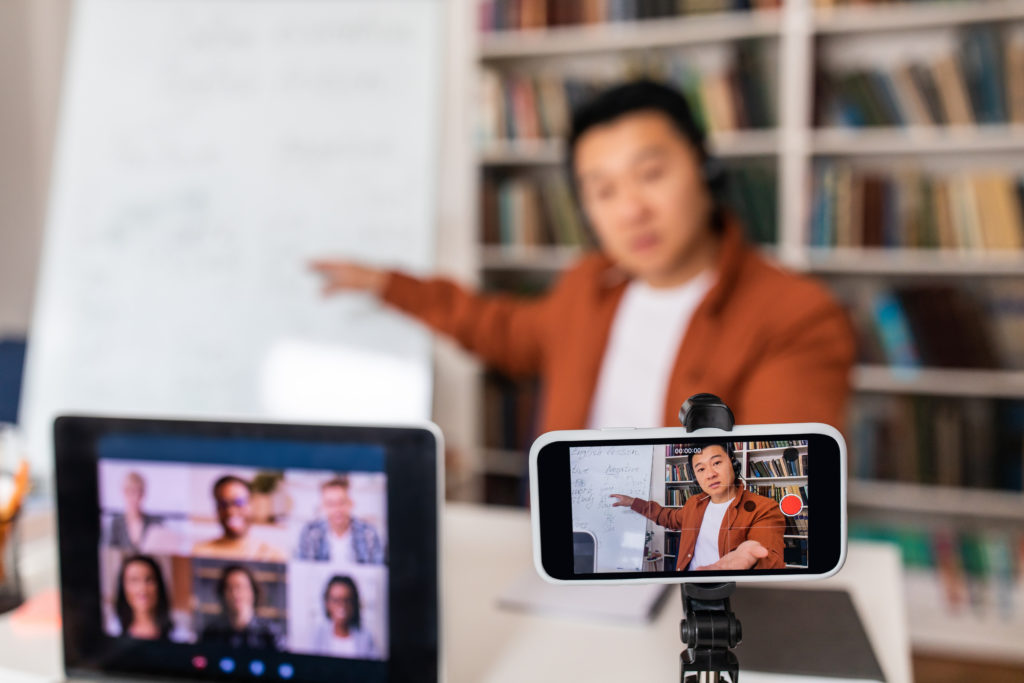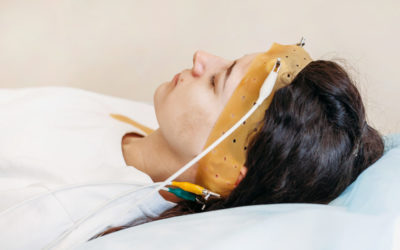Quick Hits
Daily brief research updates from the cognitive sciences

Not so long ago all learning went online – out of necessity.
There has been plenty pf research into differences in online learning and in-person learning but this study by Gellisch et al. at Ruhr-University Bochum looked at different physiological stress responses between online learning and in-person learning.
This study was interesting because it studied the same 82 students in an in-person and online learning scenario. They were attending a blended learning anatomy course that had different groups alternating between online lessons and in-person lessons (the same lessons).
The participants were monitored with heart rate sensors and also cortisol, the stress hormones, was measured by taking saliva samples at the start of the session after 60 minutes and at the end of the two-hour lesson.
What did they find?
They found that the in-person lesson stimulated higher cortisol levels, higher heart rate and lower heart rate variability. This is consistent with a stress response. So, is in-person learning more stressful? Yes, but and this is a big but, this also shows higher stimulation and higher stimulation is generally associated with better memory function and learning,
So, in short online learning is less stressful, more comfortable, but likely less impactful. This not to mention other positive benefits of in-person learning such as bonding with classmates and additional learning opportunities through casual and focused conversations around the course.
What’s more those in the in-person groups reported higher enjoyment of the very same class. So, let’s not write off in-person courses, yet!

Andy Habermacher
Andy is author of leading brains Review, Neuroleadership, and multiple other books. He has been intensively involved in writing and research into neuroleadership and is considered one of Europe’s leading experts. He is also a well-known public speaker, speaking on the brain and human behaviour.
Andy is also a masters athlete (middle distance running) and competes regularly at international competitions (and holds a few national records in his age category).
Reference
Sizhen Su, Le Shi, Yongbo Zheng, Yankun Sun, Xiaolin Huang, Anyi Zhang, Jianyu Que, Xinyu Sun, Jie Shi, Yanping Bao, Jiahui Deng, Lin Lu.
Leisure Activities and the Risk of Dementia: A Systematic Review and Meta-Analysis.
Neurology, 2022; 10.1212/WNL.0000000000200929
DOI: 10.1212/WNL.0000000000200929
More Quick Hits
Disagreements Improve Team Perception
We might assume that agreement would be high in high-performing teams – this study shows the opposite…
Brain Cells Adapt to Help You Stay Awake
Falling asleep is a funny thing – you don’t need to think about it when it happens but can cause many people who can’t incredibly frustration…
Dad Brain is Real
We know that mothers go through multiple physical and psychological changes after birth (and before) including change in brain structures but what about fresh fathers?
Mask-Wearing Makes You Better Behaved
This is a fascinating study that shows that wearing masks changes behaviour in subtle but important ways…
Coffee Can Help You Live Longer
Yes, that is good news for you (us) coffee drinkers. This supports plenty of more recent studies which have shown the health benefits of coffee…
Big Kids Die Earlier!
Before you panic – the conclusion in the title is based on research into mice not human beings – but there could potentially be some important insights for us human beings as well.






